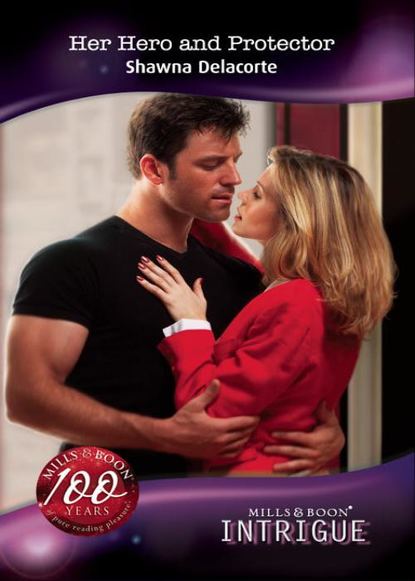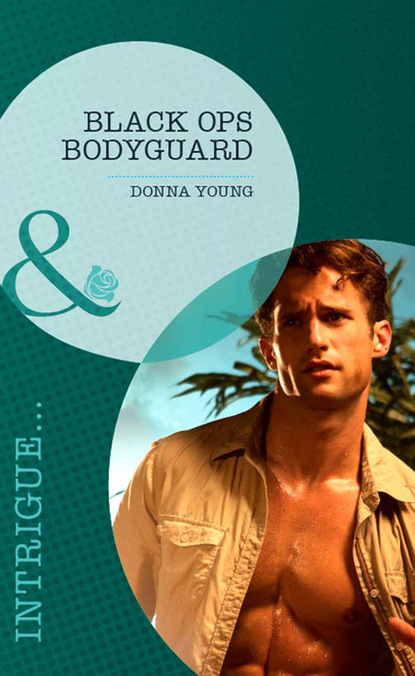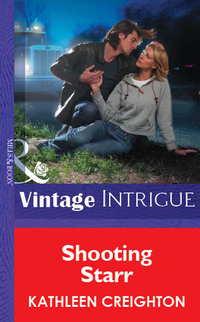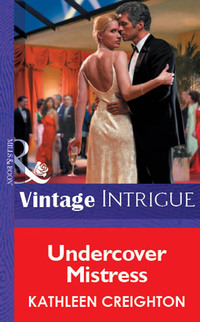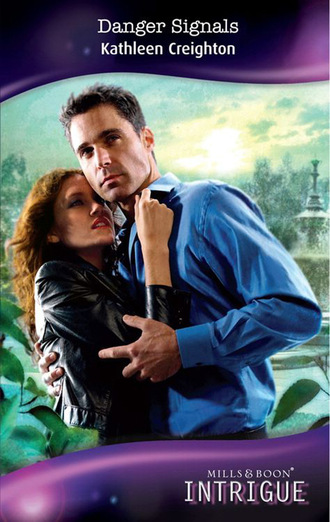
Полная версия
The Taken
Her hand was warm in his, small but vibrant, reminding him of a gentle but wary animal that had allowed him to hold it for one short moment in his grasp.
“Wade,” she murmured, and there was a shimmer of amusement in her eyes. Eyes so clear and blue and…yes, normal, he wondered how anyone in their right mind could believe she had creepy gifts. The Sight—or whatever she wanted to call it.
He released her hand and was smiling crookedly as he wrapped his around the gearshift lever, wondering whether it was himself or her he was smiling at.
She lived with her grandmother, he discovered, in an apartment above an art gallery called Jeannette’s, in a formerly hippieish part of the city that was gradually becoming yuppified. No surprises there; Wade figured if he ever wanted to hang out his psychic shingle it was the place he’d choose. Just enough hippie left to provide plenty of local ambience, with a New Age slant to appeal to the yuppies who went in for that sort of thing.
What did surprise him, though, when Tierney led him through the gallery to the stairs at the back, was how much of the artwork on display actually appealed to him. The watercolors particularly. Not the roses, so much, although he could see the real artistry in them. They were a bit too pretty and feminine—for want of a better word—for his taste. But the waterfalls, now those he wouldn’t mind hanging on his own walls. There was something about them… He paused to look closer at one, and a coolness, like fresh moist air, seemed to pour into him, filling all the churning dark places. He felt a strange easing inside, a sense of quietude and peace.
“That’s Multnomah Falls,” Tierney said. “It’s one of my favorite places.” He hadn’t been aware of her coming to stand beside him.
“Yeah,” he said, “mine, too.” He saw it now, the neat and vaguely archaic signature in the lower righthand corner: T. Doyle. He glanced at her and stated the obvious. “These are yours.”
She nodded without looking away from the painting, her smile crooked. “When I’m working on a case—like this one—I like to go there, or to places like it. Places where people feel a sense of awe. Or just…happy. Thankful.” She nodded at a panel hung with a grouping of the rose paintings. “The Portland Rose Gardens—that’s another, and it’s closer, easier to get to when I’m…when I need it. Those emotions—good emotions—nourish me. The other kind, the bad emotions…” She shook her head and glanced up at him before moving away. “I don’t know why I’m telling you this. I’m sure you’re not interested, since you don’t believe in what I do.”
“Haven’t made up my mind on that score, actually.” He was surprised to discover that was true, and judging from the smile he glimpsed as he held the door she’d opened, so was she.
He followed her through the door into a small passageway that led to what appeared to be an office, or maybe a storeroom, and the back entrance to the right, and to the left, a flight of stairs. The space smelled of some sort of cleaning product—maybe several mixed up together. Whatever it was, he couldn’t quite place it. “But I’d be interested, whether I believe in what you do or not. I’m always interested in what makes people tick.”
“Tick?” A ripple of light laughter drifted down to him as she mounted the stairs ahead of him. “You mean, you’d like to know what my ‘racket’ is, don’t you?”
“Well, sure,” he said, carefully screening his enjoyment at the view. “That, too.”
On the landing at the top of the stairs, Tierney paused to take a key from the pocket of her slacks and insert it in the door’s dead bolt lock.
“If you don’t mind waiting here for a moment, I’ll see if my grandmother’s…” The rest she left hanging as she opened the door and stepped inside, leaving him standing on the landing.
After a moment he pushed on the door she’d left almost closed but unlatched, widening the crack so he could hear what was going on inside the apartment. Didn’t hesitate or feel guilty about it, either. That was the thing about being a cop—nosiness pretty much went with the territory.
He heard Tierney call softly, her voice light, sweet, gentle, as if she were talking to a very small child. “Jennie, darling, it’s Tee…”
There was a ripple of laughter, low and musical, and a voice to match it said, “Hello, dear.”
The next words were muffled, as if by an embrace. “Gran, do you feel like having company? I’ve brought a friend. His name is Wade Callahan. Would you like to meet him?”
More of that laughter, and the voice took on a certain unmistakable lilt. “Wade Callahan—a fine Irish name! Have him come in, by all means. I’d dearly love to meet him.”
“Are you sure? You’re not too tired?”
“Not at all, darlin’—what gave you such an idea? I’m never too tired to meet a friend of yours, particularly an Irish lad.”
Tierney’s face appeared in the partly open doorway, looking flustered. “Sorry about that,” she murmured breathlessly as she opened the door wide and beckoned him in. “Detective—ah, Wade, I’d like you to meet my grandmother, Jeannette Doyle.”
He didn’t know what he’d expected—an invalid, someone frail and ancient, but sprightly, perhaps?—but it sure as hell wasn’t the person who rose from a chair near the window as he entered, holding out her hand in greeting.
She was, quite possibly, the most exquisitely beautiful woman he’d ever seen. She wasn’t tall, but her slender build and the way she carried herself made her seem so. Her head sat atop her long neck at an angle that made him think of ballerinas in flowing white dresses, or a queen bestowing her grace upon her subjects. Her hands seemed to have a life of their own, like white doves or lilies, and her hair, parted in the middle and falling in gentle waves to her shoulders, was an incredible shade of red-gold that seemed to capture light where there was none and give it back a thousand times brighter. She wore slim black slacks and a long tunic top in a soft sea-green, with iridescent blue-and-gold braided trim around the edges of the draped sleeves and neckline, and open-toed, wedge-heeled gold slippers.
“Wade Callahan,’ tis a pleasure to meet you.” Her smile was flirtatious as a girl’s, her blue-green eyes bright and wicked.
And it was only then, when she drew near enough to reach out and place those graceful white hands in his, that he saw the lines around her mouth, the softness of her jawline, the fragile crepelike skin around her eyes that gave away her age. Though just what that might be, he wouldn’t even venture to guess.
She pulled her hands from his and tilted her head, regarding him in a measuring sort of way. “But you’re no more Irish than the pope, now, are you, lad?”
He caught a breath and let it go in a gust of surprised laughter, almost covering Tierney’s dismayed gasp.
“Gran!”
“Well, he isn’t,” the lady hissed back, like an obstinate child.
Tierney shot him a look of mute apology. She seemed tense, watchful, Wade thought, like an anxious parent with a precocious and unpredictable child. His cop sense prickled along the back of his neck, telling him something was “off” here—not dangerous or anything like that—just odd.
“No, it’s okay. She’s right,” he said, surprising himself; his personal history wasn’t something he normally shared with strangers. “I was adopted. It’s my adoptive parents who are Irish.” He smiled winningly at the old lady. “Ma’am, I don’t have any idea what I am, to tell you the truth. Mongrel, I expect.”
Jeannette hesitated, looked wary, suddenly, and frightened. Wade felt a creeping sensation along the back of his neck as she leaned forward and peered into his face. One frail-looking hand clutched his with surprising strength. “Do I know you?”
“No, Gran,” Tierney began, but the old lady had already jerked around to transfer her anxious hands and worried frown to her granddaughter.
“I don’t know him, do I? Who is he? What is he doing here? Is he lost?” On that last word, her musical voice dropped to a cracking whisper. “I believe he’s lost, Isabella. Go and get him some tea. And some biscuits. He’s probably hungry, young boys are always hungry, you know…”
Chapter 2
“Yes, Jennie, darling,” Tierney said soothingly as she put her arm around her grandmother’s shoulders and gently turned her toward the kitchen, “I’m sure he is hungry. Why don’t you go and find some biscuits to go with the tea. And some sandwiches would be nice.”
She didn’t look at the detective. She was too busy bracing against the fractured emotions—confusion, fear, grief and anger—that radiated from Jeannette in waves at times like these. She couldn’t worry right now about what he might be thinking. She’d felt his sharp flash of recognition before the barriers slammed shut like storm shutters, but no doubt the clamor of Jeannette’s emotions would have overwhelmed his anyway.
She left her grandmother opening cupboards and muttering to herself and went back to the living room, bracing for the inevitable questions. The suffocating blanket of sympathy.
She found Detective Callahan where she had left him, hands in his pockets, jacket askew, watching her with thoughtful, compassionate eyes.
You’re right, Jennie, darling, lost is a better word than missing. He’s lost those pieces of himself.
“That will occupy her for a while. She won’t remember such a complicated task,” she explained with a small smile of apology. “She’ll sit down at the table and try to pick up the threads, which will be upsetting for her. To avoid it she’ll go somewhere inside her mind, somewhere in her past where she was happy. That’s where she spends most of her time now.”
“Alzheimer’s?” the detective asked. She nodded, and he murmured, “I’m sorry.” The sympathy was there, but muted, as all his emotions seemed to be.
Except for those bright flashes, like strobe lights in the dark. “So am I. I wish you could have known her the way she was. She was…something.”
“She still is.”
She threw him a quick, grateful glance and thought, He has the nicest eyes. Kind eyes. An instant later she saw those same eyes narrow and become slightly less kind.
“Who is Isabella?”
“You don’t miss much, do you?” she said lightly, stepping past him to open the door. “That’s my mother’s name. Gran calls me that when she’s…confused. Which is why I call her Jennie, then—she doesn’t understand why I would call her Gran when as far as she’s concerned she’s my mother.”
He followed her onto the landing. “Jennie? Not Mom or Mother?”
“Evidently,” she said, without looking up as she closed and locked the door, “that’s what my mother called her.”
“Evidently?”
“I haven’t seen my mother since I was three.”
“Ah.” His tone was flat, but she felt a wave of something warm, almost like kinship wafting after her as he followed her down the stairs. At the bottom he glanced at her before reaching past her to open the door—a gesture of gallantry she suspected must be automatic for him. Someone had taught him manners, and taught them well. “Something we have in common, I guess.” She threw him a curious look and he gave her back his wry smile. “I don’t remember my mother, either.”
She couldn’t know what a rare thing it was for him to talk about that stuff—at least he didn’t think she could. He sure as hell didn’t know what made him do it.
“I never said I don’t remember her,” she said as she passed him. “My memories of my mother are quite vivid, actually.”
“From when you were three? Is that part of the…” He waved a hand, trying to think of a term that wouldn’t be insulting. “Your psychic thing?”
“In a way, I guess.” She smiled at him in a gently forgiving way. “I’ve gotten all the memories I have of my mother from Jeannette.”
It took him maybe three heartbeats to get it. Then he said, “Ah” again—a bit more sardonic, this time. “Your grandmother has it, too, then? This…”
“Gift?” They were passing through the gallery, and he saw Tierney pause to touch the watercolor painting of Multnomah Falls. He saw tension in the lines between her eyebrows and wondered if she had a headache. “Days like this, it’s hard to think of it that way.”
Then she seemed to shake it off, whatever the darkness was, and moved on. “My grandmother’s…abilities, or whatever you want to call them, are different from mine. I am what is known, in the psychic world—” she cut her eyes at him in a droll way that made him chuckle “—as an empath. There’s probably a word for what Jeannette is, as well, but I don’t know what it is. She just…knows things. About people. Like she knew you aren’t really Irish. Plus, she and I have this special connection, I guess, because we can share memories. Normally, I don’t really see actual images, but with her I can. Used to, anyway.” Her face seemed to cloud over. “I used to see them—her memories of my mother—like photos in an album. Color photos, clear and bright. Now…well, now they’re sort of fragmented, like a jumbled jigsaw puzzle.”
I have memories like that.
The thought came to him with a flash of surprise, like what his mother used to call a lightbulb moment—from the comics, she’d explain. He heard himself say, “I know what you mean.” And frowned, because he hadn’t meant to voice the thought out loud.
Tierney glanced up at him, smiling her gentle smile.
Yes…I think you do. That’s what these flashes I keep getting from you are all about. We’ve a kinship, you and I, whether you like it or not. The truth is, neither of us had a chance to know our parents.
“How old were you when you were adopted?” And she wondered, even as she asked it, how she’d found the audacity to probe into the personal business of so guarded and resistant a man.
She was greatly surprised when he hitched a shoulder in an offhand way and answered her. “I don’t know—six, I think. Maybe seven.”
“Really? You weren’t a baby, then. What happened to your parents?” But this time she knew at once she’d gone too far. She saw his jaw tighten, and he didn’t answer right away. She muttered, “I’m sorry,” putting up a hand as if to stop herself. “Forgive me, please. I’m not—It’s none of my business, I know.”
The detective let out a breath, frowning. “No, it’s a legitimate question, considering the conversation.” He paused, shifting his car keys from one hand to the other and back again, then turned to her. “They’re dead, that’s all I know.” His grin appeared, tilted in a way that made curious pleasure-ripples course through her chest. “Believe me, as a police detective it irks me no end to have to admit that. I’ve tried—” He broke it off with a shake of his head, seemed to hesitate, then turned to the gallery door.
“Do you remember them?” Tierney asked softly. “Your parents?”
She was unprepared for the sudden surge of emotion, followed by a withdrawal so abrupt it was almost violent, like a slap in the face. She stepped back reflexively, and so almost missed his reply, spoken in a quiet voice and without turning.
“I don’t remember anything from before I was adopted.”
Still reeling from the emotional one-two punch, she couldn’t have spoken even if she’d been able to think of what to say. After a brief but electric silence, he threw her a glance that didn’t quite make contact.
“Yeah, look—I need to get back to the job.”
“Yes,” she said. “Of course.”
“Let me know if you get any more on our killer—or the victims.”
He pushed the door open and went out, hurrying, like someone escaping from a trap.
She wasn’t sure why she followed him. But she did. And when she stepped onto the sidewalk, she felt as if she’d collided with an electric fence. Energy sizzled along her scalp and crawled over her body, just beneath her skin. Even her bones seemed to vibrate. As if it were frantically batting at a bombardment of tennis balls, her tired mind tried to give names to the overwhelming emotions ricocheting inside her head.
Watching…watching…
Waited…searched…so long!
Found you!
Glee!
Victory!
Success! At last!
The only thing she knew for certain was that someone was watching. Watching with riveted attention and avid interest, a focus so intense it felt like a laser beam. Watching Wade.
A few dozen yards down the block, the police detective was getting into his car. She called out to him—a croak, at first, then louder. “Detective Callahan—Wade! Wait—please!”
He turned to look at her across the roof of his car. He was frowning because his heart was beating way faster than it had any reason to, unless he wanted to count having just scared himself silly, coming so close to telling a woman he didn’t know or trust things he’d never told another living soul. Right now half of him wanted to ignore her, jump in his car and get the hell out of there, get back to dealing with things he knew were real, and knew what to do with—like facts and evidence and witnesses. Dead bodies. Those things he understood.
Fortunately the other half reminded him that he’d just told this woman to let him know if she picked up anything more on his killer—or his victims. And even if he wasn’t sure whether he believed in her “gift,” the department had made her part of his team, and it behooved him to listen to what she had to say.
He watched her hurry toward him, breaking into a run the last few yards so that she arrived breathless and pink-cheeked, reminding him once again of a high school cheerleader.
Except, as she came close, he got a good look at her eyes, and against all reason and everything he thought he believed in, his skin began to crawl. He’d seen that look before.
Damn, he wished he didn’t have to ask it. But he did. “What is it? Radar pick up something?”
A pained smile flashed on and off like a light with a bad connection. “It was…someone was here, Wade. Just now. I think he’s gone, though…”
She didn’t look around, as anyone else would have, to see if she could see someone lurking in the vicinity. No—this lady closed her eyes and went still. Looking inside her own head. It gave him cold chills.
“What do you mean, someone was here? This have anything to do with—”
“No—I mean, no, not the case. At least, I don’t think so. But…he was watching you, Wade. It was like…he’d been waiting. Looking for you. For a long time. And now he’s found you. He was so…happy about it. Gleeful.”
Well, hell. What was he supposed to say to that? He ducked his head and ran a hand over the crisp stubble of his short-cropped hair while he thought about it, then lifted it up again when he heard her say softly, “You don’t believe me.”
She was standing with her arms folded, and he got the impression she was shivering, or trying hard not to. Even though she was on the opposite side of the car from him, he felt a thoroughly ridiculous urge to put his arms around her and warm her. Anything to get her to stop.
“Nah, look, it’s not that,” he said, trying to smile when what he felt like doing was grinding his teeth. “It’s just—look, thanks for the heads-up, okay? You said whoever it was is gone now, right?” She nodded, and he was relieved that her eyes were vivid and focused again. Although he had a feeling the image of those eyes would be staying with him for a while.
“Let me know if he comes back,” he said, and he got in his car and headed back downtown.
Pride made him wait until he’d turned the corner before he checked his rearview mirror. Well, hell. He was involved in a murder investigation, after all, and it was a long way from being his first. Not too much of a stretch to think somebody could take a notion to come looking for him with revenge on his mind.
It wasn’t much of a stretch, either, for a so-called psychic looking for a way to convince a skeptic to think of that, too.
* * *
Tierney watched the detective’s car until it had disappeared around the corner at the end of the block, absently rubbing her arms even though the chill that always followed an impression had already faded. She turned and went back into the gallery, frowning uneasily and wondering whether she’d done the wrong thing, telling Detective Callahan about the entity she already thought of as The Watcher. He was already teetering on the edge of disbelief, and passing along an impression so vague and meaningless was bound to only increase his skepticism. Especially since she hadn’t gotten any sense that The Watcher meant any harm.
The Watcher. From the objectivity of ten minutes removed from the experience, she replayed that extrasensory bombardment over again in her mind, searching for any signs of malevolence or danger. She couldn’t recall anything negative in it at all—quite the opposite, in fact. She kept getting that overwhelming sense of success achieved after great effort. Triumph. Intense glee. Profound relief. Joy.
What it reminded her of, she realized, was an image from a television miniseries she’d seen years ago, about a black American man searching for his roots in Africa. She’d never forgotten the look on the man’s face—an actor, of course, but no less emotionally intense, at least for her—when he heard at last the old griot, the verbal historian, recount the familiar story of how his ancestor had been taken by slavers. The man’s incredible, overwhelming joy as he cried out, “I’ve found you, you old African! I’ve found you!”
Yes. It was that kind of feeling. So vivid it shook her, brought tears to her eyes and goose bumps to her skin even now.
Laughing at herself, she dashed the tears from her eyes, rubbed away the goose bumps and went back into the gallery. She walked slowly among the paintings, soaking in their sunlit freshness and tranquility one last time before climbing the stairs to her apartment…and the darkness that was Jeannette.
Ed Francks was on the phone when Wade walked into the squad room. He covered the mouthpiece with his hand and muttered, “See the boss,” as he jerked his head in the general direction of the hallway that dog-legged off the main squad room.
Wade nodded, tossed his jacket over the back of his chair and tucked in his shirttails as he headed for the office of the homicide division chief. It was more automatic than necessary; the current chief wasn’t a stickler for spit and polish. The only thing that impressed Nola Hoffman was closing cases.
Nola, being five-ten and a little bit—six feet in the high-heeled pumps she always wore—and carrying more weight than she probably wanted to, was more than impressive enough to fit her title. It didn’t hurt, either, that she had skin the exact color of Hershey’s milk chocolate, a neck about a foot long topped off with a perfectly shaped head that was covered with maybe half an inch of fuzz the color of vanilla ice cream and the face of an Egyptian pharaoh. She was referred to as “Boss” to distinguish her from the head of Special Cases, Allan Styles, who was just about Nola’s direct opposite in every way. Styles was known as “The Chief” to his face; what most of Wade’s fellow homicide cops called him behind his back was considerably less respectful and a whole lot more colorful. Dwight Cutter, Chief of Police of the City of Portland, was never called anything but “Chief Cutter,” both to his face and behind his back.
Under the circumstances, Wade wasn’t surprised to find all three of those individuals gathered in the Homicide Division chief’s office, their faces turned expectantly toward him as he entered. The only wonder to him was that his honor the mayor hadn’t chosen to join them, as well.
“Chief Cutter… Chief Styles… Boss…” Wade said as handshakes and nods were exchanged and appropriate titles acknowledged all around. He then assumed parade-rest stance, since all available chairs in the office had been taken, and arranged his features in an expression he hoped would appear both alert and somber.


